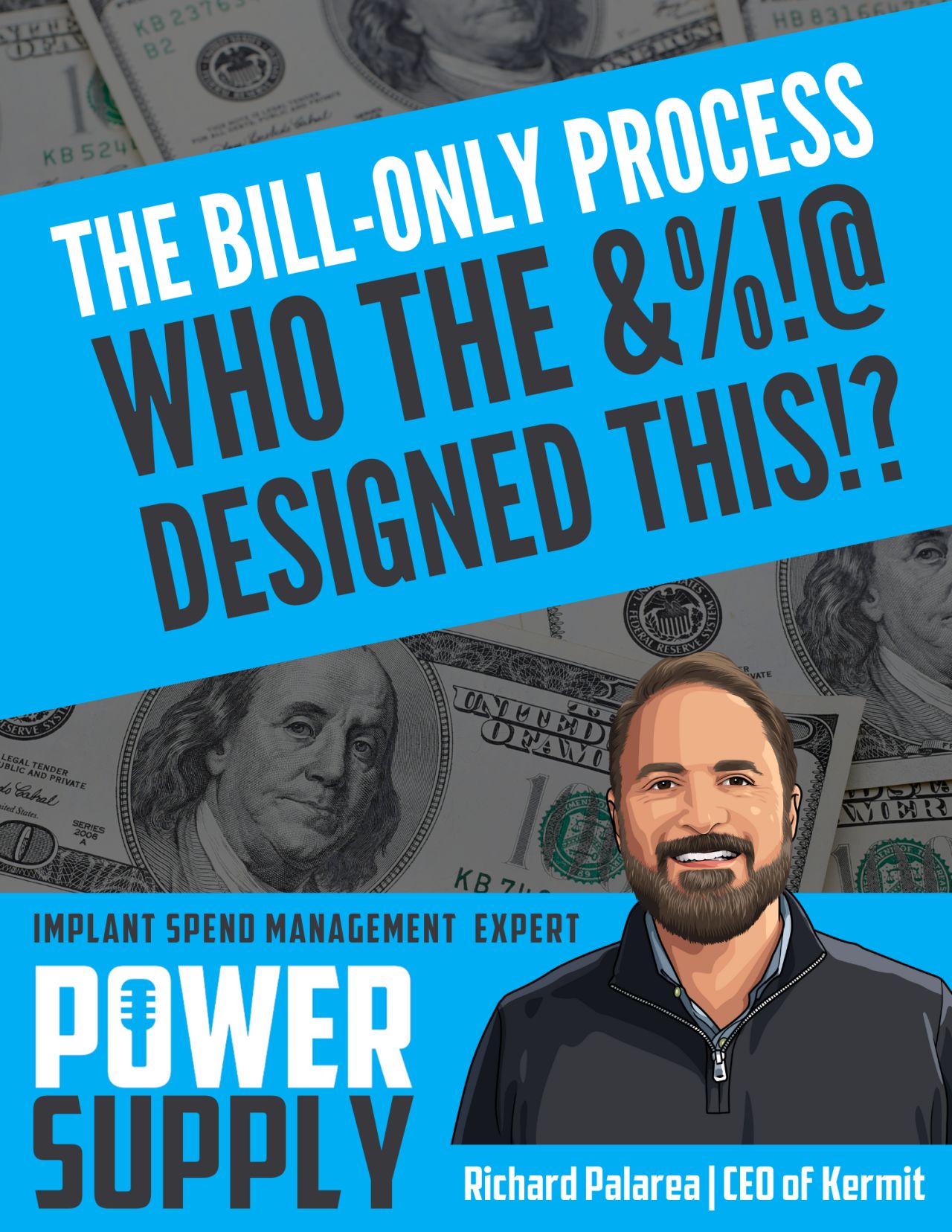Healthcare is in the process of getting an overhaul in the United States as the sector is continually under increasing scrutiny. This has caused our nation’s greatest innovators to introduce groundbreaking solutions to attempt to solve decades-old problems, improve processes, and make healthcare more affordable.
One antiquated process, however, continues to stay alive in most of our nation’s hospitals, and is relatively unknown to those who don’t work in the industry.
Let’s talk about the paper-based process of tallying and billing for implantable medical devices used in surgery, also known as the bill-only process. First I would like you to watch the short video below, it explains the current bill-only process and its many faults.
In summary, the implant salesperson is in the room during the surgery, tendering non-inventoried medical devices to the surgeon. These items do not have a price tag on the box and the surgeon generally has no idea how much the item costs their hospital. As these items are used, the salesperson takes a tally of quantity and price, all on a simple piece of paper. As the surgeon makes clinical corrections during the surgery, or as items are dropped or otherwise wasted, the piece of paper becomes filled with scratch-outs and scribbles.
Post-surgery, this messy piece of paper is taken to the hospital’s purchasing department where a non-clinical buyer must make sense of the paper bill to create a requisition and purchase order. Often, there is little to no verification that what appears on the vendor’s paper bill sheet matches what was implanted, and there is no ability for the hospital to perform automated, real-time price auditing or compliance checks with contract terms.
If you or I were to sit down and design a process today, we would never do it this way!
The entire transaction is pre-disposed to waste, fraud, and abuse. Based on the 175,000+ bill sheets Kermit has audited, we have found:
- Hospitals can reduce implant spend by 7% to 10% just by digitizing and automating this process.
- Professional staff hours can be dramatically reduced, allowing them to focus on more critical tasks.
- Actionable and accurate implant spend and utilization data are now available for surgeons, finance, and supply chain to foster greater collaboration.
- Protected health information risks can be substantially lowered by doing away with paper bills and the associated processes of transmitting and storing them.
- Contract terms can be negotiated with confidence, backed by a team of experts and a purpose-built system to measure and enforce contract agreements.
Kermit is the market leader in bringing this antiquated process into the future. With a proven record of consistent savings across hospitals, health systems, and surgical centers, the new age of healthcare is at your fingertips!

